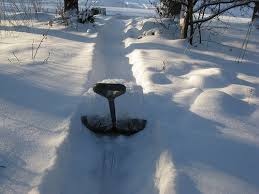According to a CBS Chicago report, by early February 2015, at least 18 people in the Chicago area had died in incidents related to snow shoveling. Shoveling snow is practically a winter sport in North Dakota, and taking a few precautions can help avoid unnecessary pain and injury.
The National Safety Council (NSC) recommends the following tips for snow shovel safely:
- Don’t shovel after eating, or while smoking.
- Do some stretching exercises before beginning to shovel.
- Take it slow, and don’t work to the point of exhaustion.
- Try to shovel only fresh, powdery snow, which is lighter than packed snow.
- Don’t lift the snow; push it instead.
- If you do lift the snow, use a small shovel or only partially fill a larger shovel.
- Lift your legs, not your back.
- If you have a history of heart disease, get a doctor’s permission before you shovel.
- If you feel tightness in the chest or dizziness while shoveling, stop immediately.
Caution Urged While Snow Blowing Also
While potentially less physically taxing than shoveling, pushing a heavy snow blower can also cause injury. The American Society for Surgery of the Hand and the American Academy of Orthopedic Surgeons offer these tips:
- If the snow blower jams, turn it off immediately.
- Keep your hands free of moving parts.
- Be aware of the carbon monoxide risk when running a snow blower in an enclosed space.
- Always refuel the snow blower when it is off, never while it is running.
Picking up a shovel or walking behind a snow blower and moving hundreds of pounds of snow, especially for those who are not in top physical shape, can put a great strain on the heart, and individuals over the age of 40 or who are relatively inactive should be extra careful.
Image courtesy of Santhan Naidoo/flickr.




